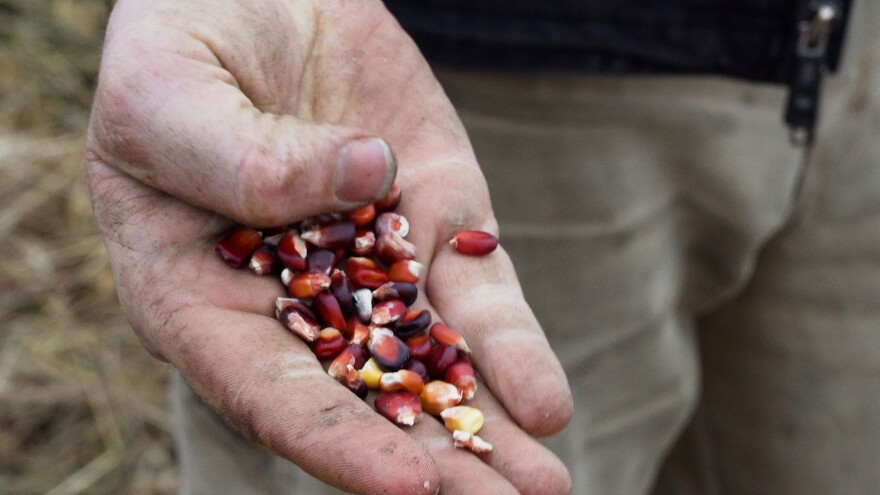That tool is increasingly useful to farms choosing to implement regenerative practices, such as planting perennials and cover crops, and reducing tillage, to better verify their on-farm carbon capture to sell credits on the emerging carbon marketplace.
Those markets are showing potential as a new revenue source for regenerative farmers like the Glazik family, but making those markets work for more farmers, while also addressing agriculture issues at large and tackling climate change, is anything but easy.
While the Glaziks are actively exploring the sale of carbon credits through the carbon marketplace startup Nori, they are also working to sell farm products directly to climate-minded consumers.
WCBU spoke with the owners of Cow Creek Organics and Silver Tree Spirits — brothers, Will, Clayton and Dallas Glazik — to hear how they are bringing the spirit of regenerative agriculture directly to Illinois consumers through their "Take a Shot at Climate Change" initiative.
Will Glazik: With carbon markets there's been quite a bit of buzz, and as a farmer we are particularly poised to sequester carbon out of the air and store it in the soil. When we implement these carbon credits and give an incentive to farmers, there's a lot of benefits that are going to come along with that.
I definitely see a problem with these carbon markets moving forward. Someone could buy up just enough offsets to then say that they're green. Say that they're making changes when really they need to look internally at their whole operation and start cutting emissions rather than just buying offsets.
Clayton Glazik: We found out, putting in 20 years of data from the farm and our growing practices, for every one pound of grain we sequester one mile worth of equivalency to carbon waste in a car.
WG: And then we saw that as an opportunity to take our story of the farm and put the power of a movement, little by little, in the hands of consumers.
We’re a unique kind of farm in that we own a direct to consumer brand. We started a distillery.
Dallas Glazik: With bringing in the whiskey, it allows us to have a more value-added cash crop. These are all of our newly ran barrels, so this is a four grain whiskey that we're going to be coming out with. It was designed to highlight the grains that we have on the farm so that'll be wheat, oats, rye, and our bloody butcher.
These particular barrels, let's start from the ground up: The tree was harvested here in Illinois and then the barrel was coopered in Illinois and then, us being farmers and able to grow our own grains, the grain was grown in Illinois. It was distilled here in Illinois. Water came from Illinois. This is as far as we know, the first since prohibition to be 100% Illinois grown and made whiskey.
WG: Every fifth made with grain from our farm was offsetting four miles of your average commute. We call that Take a Shot at Climate Change.
CG: Ultimately for every shot that you pour yourself, you're helping to combat climate change.
WG: We just want to encourage people to purchase products that are grown in a way that does help mitigate climate change.
And it's a little thing. I mean, we're 1,000 acres, so ultimately, just us is not going to be enough to even make a noticeable difference at all. But if we can start to build this on a broader scale, then we can start to see some regional changes over time.



